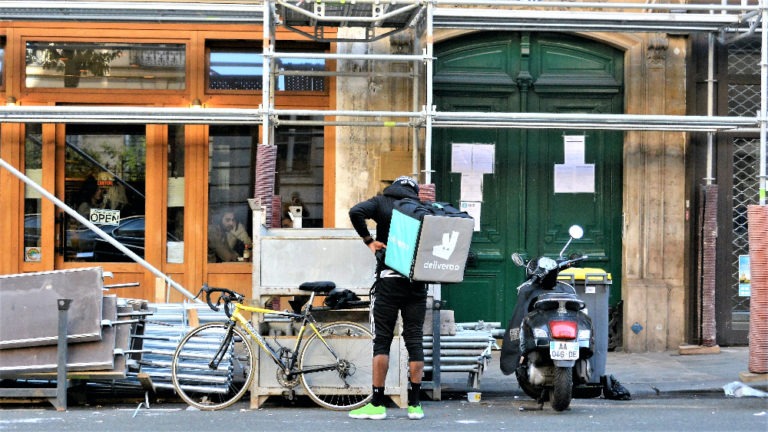Wirecard UK’s FCA freeze exposes fintech weaknesses
Money Talk is intended to inform and educate; it's not financial advice. Affiliate links, including from Amazon, are used to help fund it. If you make a purchase via a link marked with an *, Money Talk might receive a commission at no cost to you. Find out more here.
How safe is your money?
After the Financial Conduct Authority (FCA) placed a freeze on Wirecard UK’s operations this week, I had to stop to think for a moment about how safe my money was.
As I mentioned earlier in the week, the FCA freeze means that many people are now unable to access the money in their accounts.
Those affected are mainly customers of fintech (financial technology) firms such as Pockit, Soldo, Anna Money and Curve, but those who have certain prepaid money cards are affected too.
Even though these are independent companies, they all use payment services provided by Wirecard UK, which is why their customers’ accounts are now frozen.
Pockit customers will be particularly hard hit as, according to The Times, many of its 500,000 customers are vulnerable people who don’t have access to mainstream banks.
Unfortunately, at the moment, there’s no telling when they might be able to gain access to their money again.
Their money is protected though, through a process known as safeguarding.
Safeguarding vs FSCS protection
Traditional banks protect their customers’ money through the Financial Services Compensation Scheme (FSCS).
It means that should the bank go bust, customers can claim up to £85,000 of monies held with the bank via the FSCS.
If you hold more than that in a single bank, whether in separate accounts or not, you will lose everything above the threshold.
Some banks share an FSCS “authorisation” with another provider.
It means if you hold more than £85,000 across the two banks, you will lose everything over the threshold if they go bust – even if you have less than £85,000 in each bank.
Nationwide, Cheshire Building Society, Derbyshire Building Society, and Dunfermline Building Society all fall under one authorisation, for example. The same is true of HSBC and First Direct.
If a bank shares its FSCS authorisation, this is usually mentioned in the small print when you apply.
The rise of fintech and e-money firms means that there are now more products that don’t fall under the traditional banking framework and therefore don’t qualify for FSCS protection.
This is where safeguarding comes in.
All non-bank payment providers must, by law, be authorised by and/or registered with the FCA in the UK depending on what type of products they offer.
Having a safeguarding procedure in place is a prerequisite of a firm becoming authorised by the FCA, but it isn’t required if the firm is merely registering.
Small payment institutions, for example, can choose not to do any safeguarding.
The FCA requires firms to safeguard their customers’ money by “ensuring that those funds are either placed in a separate account from the institution’s working capital and other funds, or are covered by an appropriate insurance policy or comparable guarantee.”
It means if the firm goes bust, customers will be paid out of this separate account, which is protected from creditors.
Theoretically, safeguarding and FSCS protection should both keep customers’ money safe, but the reality is that it’s not always the case.
The FCA recently said that some firms were not correctly implementing the regulations around safeguarding, which could put people’s money at risk.
Because of the risks arising from the coronavirus pandemic, and the fact that many fintech firms are not initially profitable, it’s had to introduce additional guidance to finance firms, which is due to be finalised at the end of this month.
What this means for you
Fintech products can be extremely competitive and their apps are often much more robust compared to the offering from traditional banking institutions. But there are clear limitations.
In this case, all the finance firms affected are piggybacking on Wirecard UK’s services and have been affected through no fault of their own.
And unless you’ve been tracking the markets – the FT has been investigating Wirecard’s German head office for years – you’re unlikely to have seen this coming either.
It’s worth remembering that while people can’t access their money for the time being, they should get it back in the future.
Plus, even customers of traditional banks have been temporarily unable to access their money in the past.
Remember in 2018, when TSB’s massive IT glitch meant that its customers couldn’t access their accounts for weeks?
Just like that, this will take some time to iron out. (If you’re affected, the Wirecard post has more details about who to contact.)
Meanwhile, it’s worth taking a moment to do an audit of where you bank and what protection they offer your money.
You can check what category the firm you bank with falls into by searching the Financial Services Register.
Before you open up an account with that cool new fintech firm, check whether or not they’re registered and/or authorised by the FCA – remember, this is a requirement by law.
You should also consider how you’re spreading risk.
If, like the customers of Pockit, Soldo, Anna Money, Curve and others, you couldn’t get access to your account in the short term, do you have money saved anywhere else that you can use?







